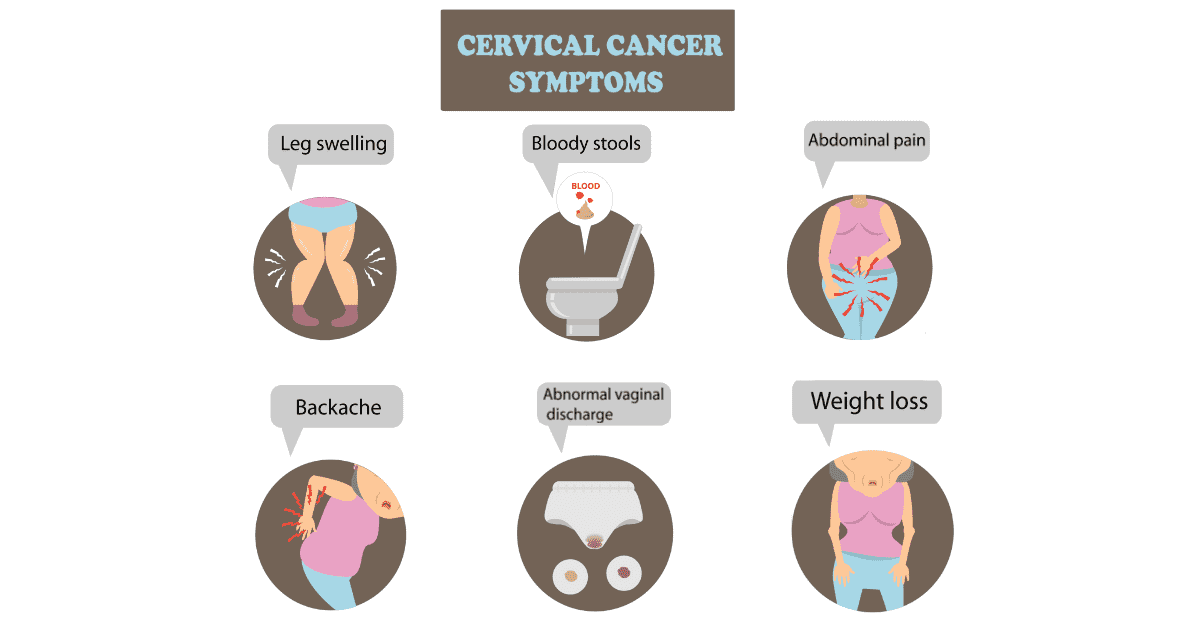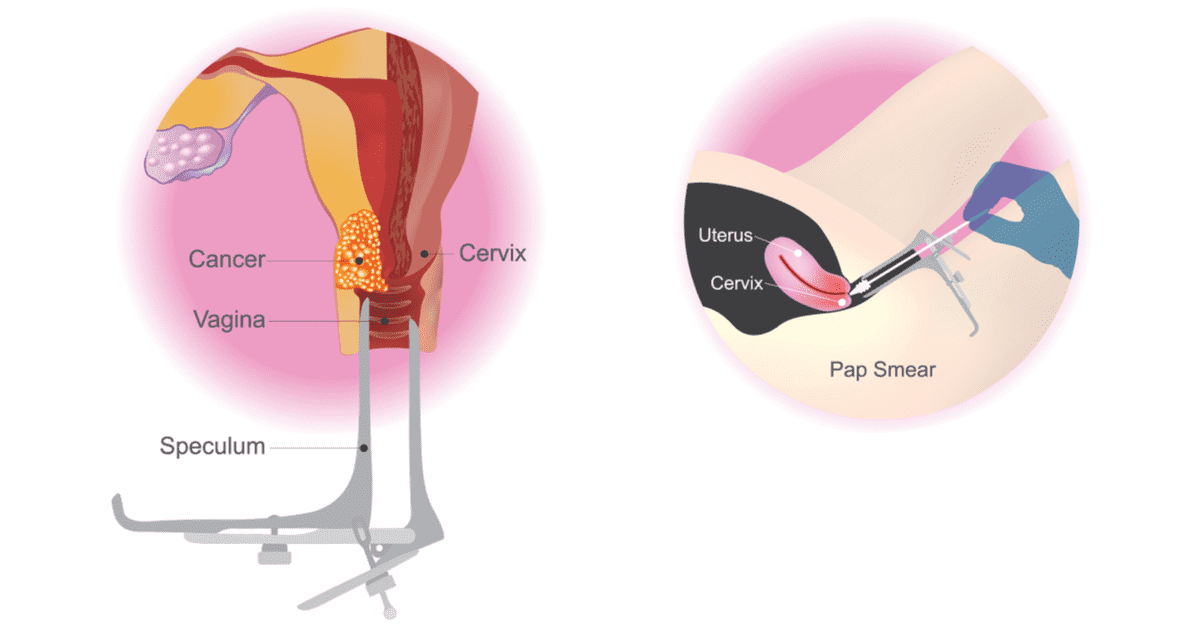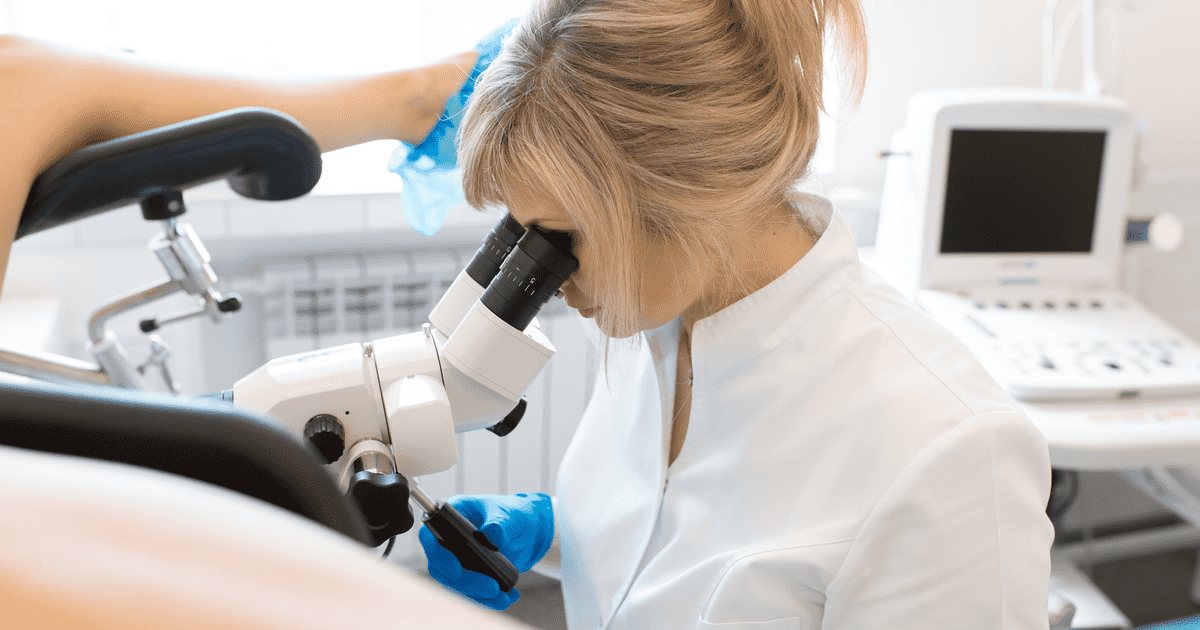Missed our webinar on Living with Cancer: When Someone You Love Has Cancer? Watch out for more webinars or the highlights on Sessions and Videos!
Cervical cancer is more common in Singapore than you think. It is the 4th-most common cancer among women worldwide. However, there is a silver lining: It is highly preventable!
Human papillomavirus (HPV) is the leading cause of cervical cancer, because of its ability to cause abnormalities in cervical cells. This is why you should get HPV vaccination and take preventative measures to reduce your risk of cervical cancer.
But are there other things that put you at risk of cervical cancer? How can you detect it early?
I am Dr Timothy Lim, a gynaecologist at Timothy Lim Clinic for Women & Cancer Surgery. In this article, I will talk about what cervical cancer is, who is at risk and how you can prevent and protect yourself from it.
What is cervical cancer?
Cervical cancer is the 4th-most common cancer among women worldwide. Among Singaporean women, it is the 10th most common [1]. But ladies, there is a silver lining: It is highly preventable [2].
As the term suggests, cervical cancer develops in the cervix, which is located in the lower part of the womb. It usually grows slowly and, often, does not cause symptoms until it is at an advanced stage [3].
Women with advanced cervical cancer may experience abnormal [3]:
- bleeding
- discharge, or
- pain
Most cervical cancers are caused by HPV

Today, we know that most cervical cancers are caused by HPV [4]. While most women's bodies can combat HPV infection, the virus can lead to cancer.
The infection causes cervical cells to become abnormal, which may then turn cancerous if it not found and treated early.
This process may take about 10 to 15 years, or in some cases even longer [5]. Thus, cervical cancer can be prevented if an HPV infection is detected and treated early.
What are the common symptoms of cervical cancer?

The most common presenting symptom is abnormal vaginal bleeding such as postcoital bleeding [6].
In the early stages of cancer, a majority of the patients report that they do not have any symptoms [7]. However, when they do exhibit symptoms, the cancer may have advanced, making it more severe.
After the cancer has advanced, symptoms may include [8]:
- lower back pain
- pelvic pain
- weight loss
- leg swelling
Apart from these, other symptoms may also be presented, including foul-smelling vaginal discharge or even vaginal passage of urine or faeces [9].
It is important to note that having vaginal bleeding does not mean that you have cervical cancer. Hence, you should check with your doctor as soon as possible.
Related: The Ultimate Guide to Gynaecological Conditions in Singapore (2021)
How does cervical cancer affect your health?
Initially, there may be no signs or symptoms of cervical cancer. But, as the cancer grows larger, it can cause abnormal bleeding or discharge from the vagina, e.g. bleeding after sex.
If left untreated, the cancer can spread to other parts of the body via 3 different routes [10]:
- Locally, involving the vagina, bladder and rectum
- Through the lymph glands
- Through the bloodstream to other organs such as the liver, lungs and bones [11]
Once the cancer has spread to other organs, it may be considered incurable. Most of the time, it is fatal with little to no chance of a cure.
If you have any of these symptoms, please see your specialist. You should note that similar symptoms may also be triggered by something other than cancer; a doctor is the best person to consult.
How is cervical cancer treated in Singapore?
Any woman suspected of having cervical cancer will be referred to a gynaecologist, who will make comprehensive assessments and suggest appropriate treatment methods. To avoid any delay, this process will be done promptly.
Also read: What is the most effective treatment for cervical cancer?
Cervical cancer treatment and management
Cervical cancer management may involve [12]:
- surgery
- radiotherapy
- chemotherapy
- palliative care
Advanced cervical cancer that involves neighbouring organs is difficult to treat and often has a high mortality rate [13].
Generally, doctors will recommend surgery to patients who:
- are medically fit
- have early-stage cervical cancer
Meanwhile, doctors will suggest radiotherapy and chemotherapy for patients who are:
- not medically fit for surgery
- in advanced stages
Related: 13 Side Effects of Chemotherapy This Oncologist Wants You to Know About
How does a HPV infection puts you at risk of cervical cancer?
The main risk factor for the development of cervical cancer is HPV.
HPV infections are so prevalent that almost all men and women will have at least one form of HPV at some point in their lives.
The majority of people become infected with HPV when they are sexually active. However, most people clear this virus without problems.
High-risk and low-risk HPVs
Here is an interesting fact: There are over 100 different types of HPV [14], but some of them do not have a relation or link to cancer.
The high-risk HPV types are HPV16 and HVP18. These types of HPV account for up to 70% of all cancers [15]. Low-risk types of HPV such as types 6 and 11 may cause genital warts [16].
Related: What is the link between cervical cancer and HPV?
What are other risk factors of cervical cancer?

Besides HPV, you have a high risk of getting cervical cancer if you have/do the following [17]:
- an early onset of sexual activity
- multiple sexual partners
- previously suffered from sexually transmitted infections
- a lowered immune system (caused by medication or from HIV infection)
- been using birth control pills for a long time
- smoke
Additionally, mothers exposed to diethylstilbestrol (DES) in the past may cause their daughters to develop abnormal cells [18]. As mentioned earlier, these abnormal cells in the cervix and vagina are causes of cancer. DES is a synthetic form of oestrogen that was prescribed to pregnant women between the 1940s and 1970s to prevent miscarriage and other pregnancy complications.
How can I lower my risk of cervical cancer?
- If you smoke, quit. If you are a non-smoker, avoid exposure to second-hand smoke.
- Do not engage in sexual activities at an early age.
- Avoid having multiple sex partners as well as those who have had many partners.
- Practise safe sex by using barrier contraception such as condoms.
- Avoid having sex with people who have genital warts or other STDs.
- Go for regular cervical cancer screening with Pap smear or HPV tests.
- Get the HPV vaccination.
Related: Complete Guide To STD Tests In Singapore (2020)
How can I check if I have cervical cancer in Singapore?

Cervical cancer screening is an effective method of prevention. It can detect abnormal cell changes of the cervix and allows doctors to suggest and perform treatment before the cells become cancerous.
Even if you adopt a preventive lifestyle, you should get yourself screened because early cervical cancer often does not cause or show any symptoms [19].
There are 2 types of screenings available now [20]:
- Pap smear
- HPV test
Both are good at detecting cervical cancer. What's more, many studies show that the HPV test alone is superior to the Pap smear in identifying women with pre-cancerous changes of the cervix.
Also read: Is there a home screening test for HPV?
Cervical screening with a Pap smear should start as soon as a woman becomes sexually active. This should be performed at least once every 3 years if the preceding Pap smear is normal.
What happens during a Pap smear?

During the vaginal examination, cervical cells will be obtained by scraping the surface of the cervix. A doctor or nurse will gently insert a metal or plastic speculum into your vagina to see the cervix. They will then use a small sampler — a tiny spatula or a brush — to gently collect cells [21].
The procedure takes only a few minutes and it will not hurt you. Still, you may feel some sort of pressure or discomfort. Also, you may feel a mild scratching sensation when the Pap smear is being done.
Related: How should I prepare for a Pap smear?
What happens during the HPV test?
The process of collecting cell samples from the cervix in an HPV test is the same as that of the Pap smear.
The HPV test checks for infection caused by high-risk types of HPV. As mentioned earlier, examples of high-risk types of HPV are types 16 and 18.
Based on many population-based studies, the HPV test alone is effective in detecting cervical abnormalities [22].
Approved by the United States Food and Drug Administration (FDA) in 2014, it became a first-line screening test for cervical cancer [23].
When should you get screened for cervical cancer?
Doctors recommend the Pap smear for women aged between 25 and 29. This is according to the National Cervical Cancer Screening Programme guidelines published in 2019 [24].
Meanwhile, the HPV test can pick up quite a fair bit of false positives in this age group. In women younger than 30 years, the prevalence of high-risk HPV infections is high but most of these infections are resolved without intervention.
Related: What age group is most at risk of developing cervical cancer?
Doctors do not suggest that women within this age band take the HPV test [25]. However, doctors do suggest that women aged 30 to 70 take the HPV test instead, and do so once every 5 years [26].
Early detection and treatment can prevent up to 80% to 90% of cervical cancers [27]. However, like any other screenings, they are not perfect and do not always detect early cell changes.
Nevertheless, get yourself screened, and if you experience any symptoms, consult your doctor immediately.
What happens when your test result is abnormal?
An abnormal Pap test result means that your cervix has abnormal cell changes. This does not necessarily mean you have cervical cancer.
The changes can be minor (low grade) or serious (high grade). The more serious changes are often referred to as pre-cancerous, meaning that the cells are not cancerous yet, but can be over time.
The doctor will recommend a diagnostic procedure called a colposcopy. A colposcopy is an examination of the cervix with a microscope, performed by a qualified specialist.

To help pick up abnormal areas, certain chemicals are applied onto the cervix. These abnormal areas are then biopsied and examined under a microscope by a pathologist — a doctor who examines these tissues under a microscope.
The doctor will schedule other tests if the biopsy confirms that you have cervical cancer. These include radiological tests such as a chest X-ray and a CT scan or MRI of the abdomen and pelvis.
This is to exclude any regional or distant spread of the cancer. Examination of the pelvis under general anaesthesia and a cystoscopy (a scope of the urethra and bladder) will also be scheduled. These help the doctor determine the extent of the cancer.
Read more: What should I do after a positive HPV test result?
What should I do if:
1) I am diagnosed with cervical cancer?
You should make an urgent appointment with a gynaecologist — someone who can answer questions about women's health.
What a gynaecologist does;
A gynaecologist is a medical specialist who:
- specialises in women's reproductive health, e.g. pregnancy and fertility
- can treat common gynaecological problems involving menstruation, menopause, uterus, ovaries, endometrium, women's urinary tract, etc.
- has knowledge and experience in gynaecologic cancers
You may also want to read: Dealing With Cervical Cancer: A Women's Gynaecological Cancer Awareness Campaign
2) I have precancerous changes of the cervix
Treatment may be required if precancerous changes are found. In this case, it could be in the form of ablative surgery or excision surgery.
Ablative surgery, such as laser vaporisation of the cervix, burns away the abnormal cells on the cervix.
Meanwhile, excision surgery removes the abnormal cells by cutting out the piece of cervix tissue [28]. Examples of excision surgery are cone biopsy and loop electrosurgical excision procedure (LEEP). The type of treatment and surgery will depend on several factors, including the type of precancer, age and co-morbidities.
Treatment in this phase will effectively prevent cervical cancer from developing.
Also read: The Ultimate Guide to Fighting Cancer in Singapore (2020)
Where can I go to for cervical cancer screening in Singapore?

You can get a Pap test or HPV test at:
- your doctor‘s office
- a community health clinic
- the health department
In Singapore, the tests are available at all polyclinics, hospitals, GP clinics, private O&G clinics and the Singapore Cancer Society.
Read more: Pap Smear in Singapore: The Ultimate Guide To Detect Cervical Cancer (2020)
You can prevent cervical cancer with HPV vaccination
Since cervical cancers are mainly caused by persistent high-risk HPV infection, cervical cancer is thus highly preventable.
High-risk HPV infection, such as those arising from types 16 and 18, accounts for up to 70% of all cervical cancers. The 2-valent and 4-valent HPV vaccines have been in use for the past decade, with studies showing that these vaccines are safe and highly efficacious [29].
To maximise the benefit, the vaccine should be given before the onset of sexual activity. Do note that it does not protect against pre-existing HPV infections.
Besides cervical cancer, HPV also causes [30]:
- vulvar and vaginal cancer in women
- penile cancer in men
- anal and oropharyngeal cancer in both sexes
Approved by the FDA in December 2014 [31], the 9-valent HPV vaccine was launched for use in Singapore in April 2017.
Young men and women aged between 9 and 26 can now request this vaccine if they need it.
Also read: 13 Important Facts about HPV Vaccination in Singapore
Conclusion
With advancements in medical science, we can effectively screen and prevent cervical cancer today.
Those who are eligible should protect themselves with the recommended HPV vaccines. However, you will still need to go for screenings even after vaccination.
Women between 25 and 29 years old should get a Pap smear once every 3 years. For women aged 30 from 70 years old, I recommend that you get an HPV test once every 5 years.
With early detection, we can prevent cervical cancer from developing. Be sure to consult a doctor if you are ever in doubt.
Dr Timothy Lim Yong Kuei is a specialist in obstetrics and gynaecology. He has a special interest in the management of gynaecological cancer and has more than 20 years of medical experience. Also, he has a strong passion for public health education, especially in the prevention and treatment of gynaecological cancers.
Also, read more from Dr Timothy Lim in his QnA here.

